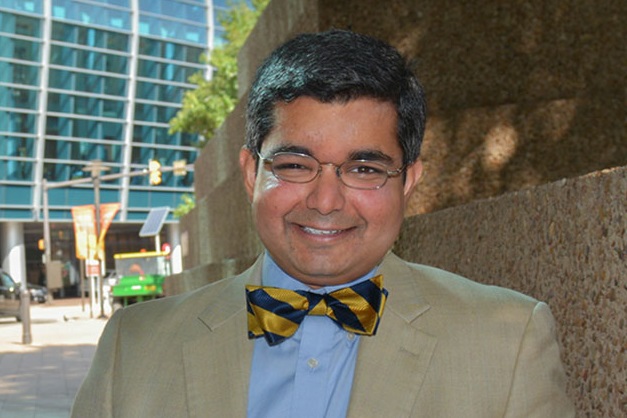
Saurabh Vishnubhakat
Associate Professor
Saurabh Vishnubhakat writes and teaches on intellectual property law, civil procedure, and administrative law, particularly from an empirical perspective. He holds a joint appointment as Associate Professor in Texas A&M University’s Dwight Look College of Engineering and is a fellow of the Duke Law Center for Innovation Policy.
Professor Vishnubhakat’s research has been cited in federal appellate and trial court opinions, governmental reports, and over a dozen Supreme Court briefs. He has published in the intellectual property and technology journals of the Harvard, Yale, Berkeley, and Duke law schools as well as the peer-reviewed Journal of Economic Perspectives and Journal of Law and the Biosciences. His first book, A Tort Theory of Patent Litigation: History and Reform, is forthcoming from Cambridge University Press.
Until 2015, Professor Vishnubhakat served in the United States Patent and Trademark Office as principal legal advisor to that agency’s first two chief economists. He was also a faculty fellow at the Duke Law School, where he co-taught patent law, and was a postdoctoral associate at the Duke Center for Public Genomics, where he studied law and policy issues surrounding innovation in genetics and biomedicine.
Professor Vishnubhakat holds a J.D. and LL.M. in intellectual property from the University of New Hampshire School of Law, formerly the Franklin Pierce Law Center, where he was an editor of the Law Review. He also holds a B.S. in chemistry from the Georgia Institute of Technology. He is admitted to the state bar of Illinois.

Recent Articles by Saurabh Vishnubhakat
The Day One Project recently released over 100 proposals for the Biden-Harris administration to use as roadmaps in crafting science and technology policy. One of those proposals, a Transition Document for the United States Patent and Trademark Office (USPTO), recommends an important and specific step forward for the growing policy agenda on diversity in U.S. innovation. The USPTO should undertake a pilot program for mandatory collection of demographic data from patent and trademark applicants. This recommendation is a conscious break from past public commentary, which has often urged data collection on a purely voluntary basis.

![[IPWatchdog Logo]](https://ipwatchdog.com/wp-content/themes/IPWatchdog%20-%202023/assets/images/temp/logo-small@2x.png)